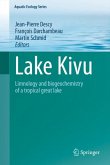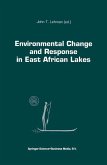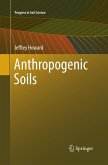Earth is home to an estimated 8 million animal species, 600,000 fungi, 300,000 plants, and an undetermined number of microbial species. Of these animal, fungal, and plant species, an estimated 75% have yet to be identified. Moreover, the interactions between these species and their physical environment are known to an even lesser degree. At the same time, the earth's biota faces the prospect of climate change, which may manifest slowly or extremely rapidly, as well as a human population set to grow by two billion by 2045 from the current seven billion. Given these major ecological changes, we cannot wait for a complete biota data set before assessing, planning, and acting to preserve the ecological balance of the earth. This book provides comprehensive coverage of the scientific and engineering basis of the systems ecology of the earth in 15 detailed, peer-reviewed entries written for a broad audience of undergraduate and graduate students as well as practicing professionals in government, academia, and industry. The methodology presented aims at identifying key interactions and environmental effects, and enabling a systems-level understanding even with our present state of factual knowledge.
Bitte wählen Sie Ihr Anliegen aus.
Rechnungen
Retourenschein anfordern
Bestellstatus
Storno








